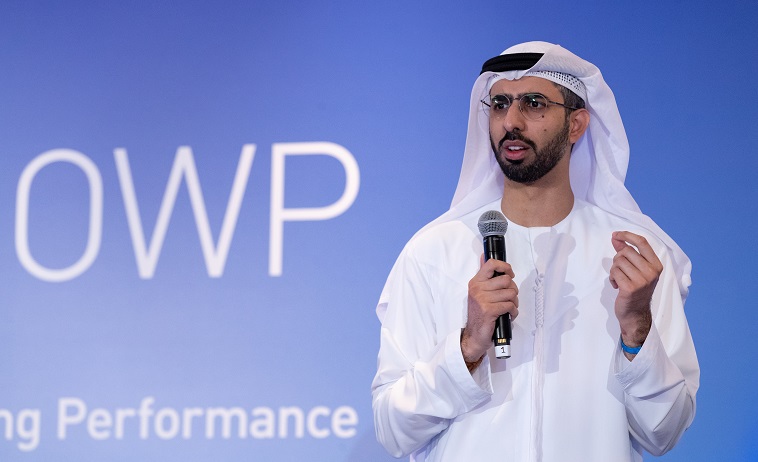UAE’s AI minister cautions that too much regulation could slow down tech progress, much like historical mistakes of the past. The UAE showed its forward-thinking approach by becoming the first country to set up a dedicated AI ministry in 2017. Omar Al Olama, UAE’s AI minister, points to a powerful example from history – the Ottoman Empire’s 200-year ban on the printing press. This ban held back progress by a lot because people feared job losses and false information.
The UAE has achieved remarkable progress in building its AI ecosystem since the ministry’s creation. Their National AI Strategy 2031 plans to boost the economy by 335 billion dirhams. Dubai has grown into a regional tech hub under this leadership. The AI workforce numbers tell an impressive story – from 33,000 professionals in 2021 to over 120,000 in 2023. A new AI and Advanced Technology Council was created in January 2024 to accelerate progress further.
The country takes an all-encompassing approach to AI development with rules like Federal Decree-Law No. 45 of 2021 on Personal Data Protection. The UAE believes too many regulations could hurt innovation and economic growth. Their model balances ethical standards with room for new ideas. Anyone using AI for discrimination faces penalties between 500,000 and 1 million dirhams. This shows how countries can push technology forward while keeping proper safeguards in place.
UAE Minister warns AI overregulation could repeat past mistakes

Image Source: IMD Business School
The UAE minister of artificial intelligence uses two powerful examples from history to show how strict regulations held back technology’s progress. These stories offer valuable lessons at the time when we shape AI policies.
The Ottoman Empire’s printing press ban stalled progress
Sultan Bayezid II’s edict in the 15th century banned printing presses for Arabic and Turkish scripts in the Ottoman Empire. Three main concerns drove this ban: calligraphers feared losing their jobs, religious scholars worried about fake religious texts spreading false information, and rulers felt uneasy about the unknown. The ban stayed until 1727, when Sultan Ahmed III allowed limited printing. This choice proved disastrous for the Muslim world. They missed the Renaissance and scientific revolution that reshaped the scene in Europe. Historians believe this single regulatory mistake pushed the Middle East back by roughly 200 years.
Britain’s red flag law held back car development
The British Parliament’s 1865 Locomotives on Highways Act (the “Red Flag Act”) forced all self-propelled vehicles to move at walking speed (4 mph max in countryside, 2 mph in towns). Each vehicle needed someone walking ahead with a red flag. The law required three people to operate each vehicle. Railway companies and coach owners lobbied for these rules, which removed any benefits of mechanical transport. These restrictions crippled Britain’s automotive industry for 30 years, letting European manufacturers take the lead. Parliament finally repealed the act in 1896.
Historical lessons shape today’s AI policy
The UAE’s minister brings up these examples because people’s fears about artificial intelligence today match historical concerns. Past experiences help us learn about current technology governance challenges. In spite of that, policymakers should use these comparisons carefully and understand both similarities and differences between past and present. Good AI governance needs the right balance between progress and protection. The minister believes we must understand these past mistakes to create rules that protect society without blocking technological progress.
How has the UAE avoided the overregulation trap?

Image Source: Middle East AI News
The UAE stands apart from other nations dealing with AI regulation. They have thought over an approach that supports tech advancement while keeping proper oversight. Their strategy shows how countries can accept new ideas without restricting breakthroughs through too many rules.
Minister of AI UAE encourages breakthroughs-first governance
The ministry of artificial intelligence UAE believes that good governance means “proactively changing the world first” instead of just reacting to tech developments. This belief forms the foundation of UAE’s approach to AI regulation. The minister of state for artificial intelligence leads the UAE AI and Blockchain Council and coordinates implementation across all emirates through teamwork between stakeholders. The country wants to “build an AI economy, not wait for one”.
UAE brings unique strengths to AI governance by connecting “big ideas and practical implementation”. The minister of AI UAE has trained over 400 people in the sector. Students starting from grade 9 now learn AI basics to prepare for future economic needs.
Balanced legal frameworks like the Personal Data Protection Law
Federal Decree-Law No. 45 of 2021 on Personal Data Protection shows UAE’s balanced regulatory approach. This groundbreaking federal law was drafted with major technology companies, showing UAE’s governance model’s collaborative nature. The framework protects data privacy and defines clear rights and duties for everyone involved.
UAE’s regulatory strategy emphasizes:
- Smart integration of AI into government services
- Protection of personal data without limiting breakthroughs
- Focus on practical implementation rather than abstract policy
Public-private partnerships with firms like Microsoft
The minister of artificial intelligence Dubai has built strategic collaborations that boost UAE’s position as a global AI hub. Microsoft’s AED 5.51 billion (approximately $1.5 billion) investment in Abu Dhabi’s G42 proves this point. This partnership comes with an unprecedented Intergovernmental Assurance Agreement that sets AI safety and security standards.
Both companies have put AED 3.67 billion into a development fund for developers. This fund helps build a skilled AI workforce throughout the region. These collaborations help organizations of all sizes use AI benefits while following world-leading safety standards. UAE combines “unique AI capabilities with Microsoft’s reliable global infrastructure” and strengthens its position as a breakthrough leader.
What can other countries learn from the UAE’s AI strategy?
Nations worldwide face challenges in creating AI governance frameworks. The UAE leads the way with its groundbreaking approach. Their strategic decisions show how to balance state-of-the-art technology with responsible governance.
Ministry of Artificial Intelligence UAE as a global model
The ministry of artificial intelligence UAE represents the world’s first dedicated AI ministry. Their governance framework serves as a blueprint that other nations can adapt. Specialized oversight has proven to accelerate national AI development. The minister of state for artificial intelligence created a model where government acts as both regulator and catalyst for growth. This dual role has helped speed up AI adoption.
The UAE’s AI Readiness Index stands out as a unique feature. Progress measurement happens in key sectors like government services, education, and healthcare. Data-driven decisions guide policy adjustments and targeted interventions. The UAE treats AI as a national strategic asset that needs dedicated governance structures.
AI ethics guidelines that prioritize human values
The minister of artificial intelligence Dubai champions ethical frameworks that align technological progress with society’s values. Clear guidelines exist through Ethics Principles and Guidelines for Responsible AI. These focus on fairness, transparency, explainability, and security without compromising growth.
The UAE excels at creating AI systems that respect local cultural contexts. The minister of AI UAE emphasizes how AI governance should reflect society’s values rather than using generic solutions. Their culturally sensitive approach to AI development teaches valuable lessons to diverse societies worldwide.
Global engagement through UN and WEF platforms
The uae minister of artificial intelligence shapes global AI governance through active participation in multilateral forums. The UAE contributes to the UN Secretary-General’s High-level Panel on Digital Cooperation. They advocate for inclusive AI development that helps developing nations.
The UAE promotes international collaboration on AI standards through the World Economic Forum. The minister of artificial intelligence leads discussions about:
- Harmonizing regulatory approaches across regions
- Developing shared principles for responsible AI
- Ensuring AI benefits reach underserved communities
Small nations can influence global technology governance through mutually beneficial alliances and consistent advocacy. The UAE proves this through their international engagement.
Could global AI regulation repeat history’s mistakes?

Image Source: LinkedIn
Countries worldwide respond differently to AI technologies. This creates scattered regulations that might repeat past mistakes. Several tech leaders warn about AI policies that could lead to excessive control, just like before.
Risks of fragmented or overly cautious global policies
Regulatory approaches show major differences across regions. A 2023 survey of 193 UN member states revealed that just 38 countries had specific AI strategies. Developers face uncertainty because of this scattered landscape, and it might slow down progress. The UAE’s AI minister points out these concerns:
- Some regions’ extreme caution leads to regulatory arbitrage
- Companies must create different versions of products due to conflicting standards
- Complex rules might keep developing nations from enjoying AI benefits
The global community now faces the same challenges we saw with past technologies, where fear led to counterproductive rules.
Why inclusive international dialog is essential
Building effective global AI rules needs more than just input from tech powerhouses. The state minister for AI promotes frameworks that include views from:
- Developing economies that want to benefit from AI
- Different cultures with unique value systems
- Industries of all types with specific regulatory needs
Leaving out these diverse voices might lead us to repeat the Ottoman Empire’s mistake of letting only elite groups make decisions. Such limited approaches can create rules that miss important cultural differences and block progress.
How UAE’s approach could shape global norms
UAE’s ministry of artificial intelligence shows a different way to balance progress with safety measures. They bring together government, industry, and academic experts – a method that could help shape worldwide standards.
Dubai’s AI minister positions the UAE as a place to test practical governance models. The UAE teaches valuable lessons to global policymakers by showing how targeted rules can protect people without stopping tech advancement.
The AI minister believes we need worldwide teamwork rather than separate national policies to avoid past regulatory mistakes. This idea drives UAE’s role in international meetings that aim to create shared AI governance principles.
Finding the Innovation-Regulation Balance
History shows how regulatory overreach has held back technological progress. The Ottoman Empire’s printing press ban and Britain’s Red Flag Act are prime examples. The UAE learned from these past mistakes and carved its own path under its minister of artificial intelligence. Their approach strikes a balance that protects citizens while letting innovation flourish.
The UAE made history by creating the world’s first dedicated AI ministry. The country also put in place targeted frameworks like the Personal Data Protection Law that set clear boundaries without restricting progress. The UAE’s balanced strategy goes beyond local policies. They take part in global discussions to help shape international AI governance standards.
Countries across the globe struggle to develop AI policies that work. While job losses, security risks, and ethical concerns need attention, too many restrictions could repeat mistakes from the past. The UAE’s model gives us a clear picture of good governance that brings together government, industry, and academia instead of top-down control.
The key to successful AI integration lies in understanding both what technology can do and how it affects society. The UAE’s ministry of artificial intelligence has made the country a world leader by staying away from either too little or too much regulation. This practical middle ground offers the best path to advance AI responsibly—one that takes rea






